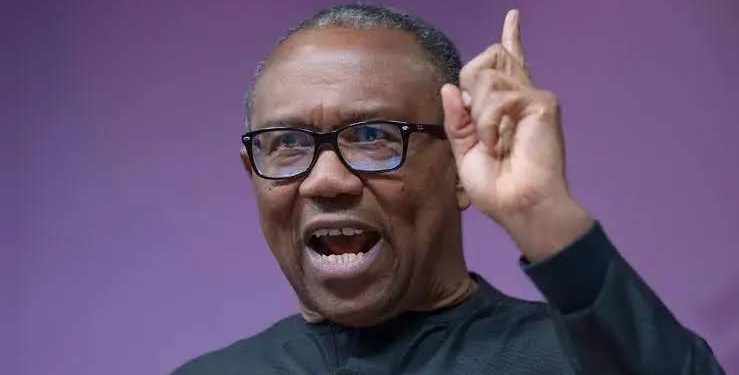The Nigerian political scene is once again abuzz, this time with a groundbreaking proposal from Peter Obi, the Labour Party’s 2023 presidential candidate. Obi, a well-known figure with a reputation for straightforward politics, has put forth a radical idea that could redefine the country’s political structure: a single, five-year presidential term. This suggestion comes with the goal of addressing some of Nigeria’s most deeply rooted political challenges, and it’s already causing waves across the nation.
Obi’s proposition was made during a visit to Bauchi State, where he met with Governor Bala Mohammed. Drawing inspiration from South Korea, where a five-year single presidential term has been effective, Obi believes this model could be the key to improving governance in Nigeria. He argued that such a structure would allow a president to focus entirely on the nation’s development without the distraction of a re-election campaign. “If I have the opportunity, we should stop having a second tenure for presidents. It should be five years,” Obi stated, triggering discussions in political circles.
This isn’t the first time Nigeria has seen calls for a single-term presidency. The country’s current constitution, established in 1999, limits both the president and state governors to two four-year terms, a measure designed to avoid the “president for life” issues seen in some African nations. However, critics of the system argue that the quest for a second term often overshadows crucial governance issues, resulting in a politically charged environment fraught with patronage and power struggles. Former President Goodluck Jonathan had also proposed a six-year single term in 2011, though the idea never materialized.
Obi’s proposal carries significant weight due to his impact on Nigerian politics. As the leader of the “Obidient” movement, Obi’s 2023 presidential campaign energized the youth and disrupted the traditional political party system. His call for fiscal responsibility, accountability, and a shift from a consumption-based to a production-driven economy aligns seamlessly with the idea of a single-term presidency. It’s viewed as a potential solution to the inefficiencies and corruption tied to the current re-election process.
Supporters of the idea, including Obi, argue that it would remove the pressures of campaigning for a second term, enabling presidents to make bold, long-term decisions without fear of political repercussions. A single term could also drastically reduce election-related costs and violence, and encourage more frequent power rotation among Nigeria’s diverse regions. This idea resonates deeply with the country’s complex political landscape.
However, the proposal has its detractors. Critics suggest that removing the incentive of re-election could lead to a president who is less accountable and potentially more corrupt, knowing there would be no future political consequences for their actions. Some also argue that five years might be insufficient for a president to implement meaningful reforms in a country as diverse and complex as Nigeria.
As the debate continues to unfold, Obi’s proposal is forcing Nigerians to examine the very foundation of their governance system. Whether a single-term presidency will be the solution to Nigeria’s political challenges remains uncertain, but one thing is clear: Peter Obi’s bold call for change is capturing the nation’s attention and could reshape the country’s political future.

